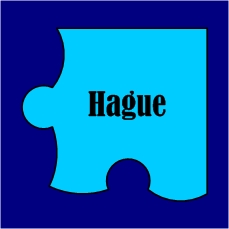Czech Republic Intercountry Adoptions Microcosm of US Intercountry Adoptions

Increase in NonHague Adoptions? 
Lack of interest in adopting minorities and disabled domestically?
Skirting regulations /prospective adoptive parent requirements? 
“While in the “western” world the adoption of orphans from developing countries – including unwanted children from the Czech Republic – is a completely ordinary matter, Czech authorities persist in dissuading Czech families from adopting children from abroad. Czech tactics in the area of international adoption are peculiar: Unwanted children, primarily those of Romani origin, may be placed with families abroad, but the adoption into the Czech Republic of abandoned foreign children is not supported. News server Aktuálně.cz reported on the policy in an article released Monday (available in full at http://aktualne.centrum.cz/domaci/spolecnost/clanek.phtml?id=710618).
Czech couples’ interest in children from what are sometimes very exotic countries is growing, and those interested are finding their own ways to adopt. Last year, mainly thanks to such “wild” adoptions, 27 children were brought into the country, at least eight of whom were from Congo. During the first half of 2011, the rate of such adoptions is estimated to have grown by one-third, with 18 so far this year.
“It cannot be ruled out that there really is a rising trend in the number of ‘non-Hague’ adoptions from abroad,” says Zdeněk Kapitán, director of the Office for the International Legal Protection of Children (Úřad pro mezinárodněprávní ochranu dětí – ÚMPOD), which handles cross-border adoptions.
“Nevertheless, we can’t automatically presume the number of adoptions will be the same in the second half of the year.” Kapitán has promised to provide data on where these children are coming from and how they are making it into Central Europe.
A “non-Hague” adoption means the adoption of a child in a country that has not concluded a treaty with the Czech Republic about adoption processes. Parents adopt children “on their own initiative” in such states.
Congo, destroyed by civil war, is one example. Would-be parents need to provide the documents required by the country and need to know local legislation, but most of all they need contacts and the money without which it is very difficult to get the official machinery in developing countries to move.
The Czech state does not like these adoptions. “The Ministry of Labor and Social Affairs is against the facilitation of adoptions of children into the Czech Republic from states that are not signatories to the Hague Convention,” Táňa Švrčková, a spokesperson for the ministry, told Aktuálně.cz.
While state bureaucrats will only give their auspices to adoptions performed according to Hague Convention rules, in Brno the authorities have never performed a single “proper” adoption into the Czech Republic under state supervision during the 10 years the ÚMPOD has been in operation.
Instead, the agency has been sending a significant number of children, around 350 to date, for adoption into families abroad, primarily to tolerant countries in Scandinavia. Most of these children are not only of Romani origin, but are disabled. There is said to be no hope of their being adopted in the Czech Republic.
The official lack of adoptions into the Czech Republic from abroad does not correspond to the demand. “When I started taking an interest in adoptions from abroad, I turned to the ÚMPOD in Brno, but they recommended I arrange the adoption privately because it would take too long to do officially,” says Zuzana Králová, who adopted an African-American girl from the USA three years ago. While the USA is a “Hague Convention” country, to use the official terminology, Králová arranged everything herself.
Králová first took an interest in adopting from abroad when she learned she had no right to adopt a Czech child. “The obstacle was that as a diplomat I had to work abroad temporarily,” the young woman said. Adoption abroad has become the solution for couples who have little chance of adopting a healthy infant in the Czech Republic. ”
Czech state restricts foreign adoptions, “exports” Romani infants
[Romea 8/17/11translated by Gwendolyn Albert]
REFORM Puzzle Piece


Recent Comments